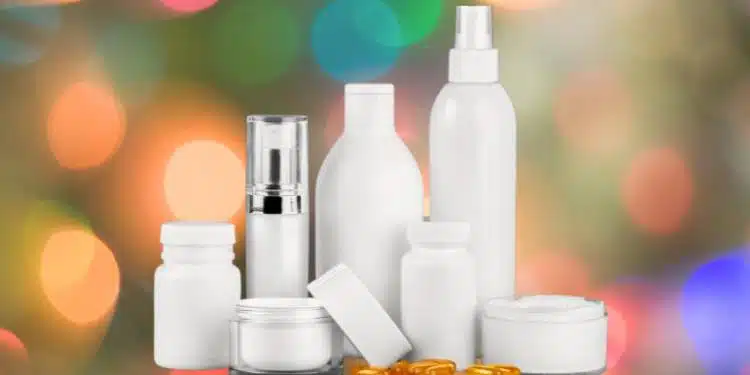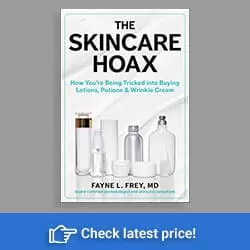A lot of us fall for misleading skincare claims on product labels. They sound so promising! With the holidays upon us, many of you are furiously shopping. Maybe you’re busy trying to fill those stockings with all kinds of goodies. Or perhaps you spend more on skincare products for yourself at this time of year to look your absolute best for the holiday parties. I get it. But now is the time to be a mindful consumer! Skincare companies are masterful marketers, so make sure you understand what you are buying and whether it is a good deal.
Understanding Claims on Skincare Product Labels
Buy One Get One Free
Buy One Get One Free (BOGO) labels are certainly enticing. But are they transparent? If the item was truly free, you wouldn’t have to buy the first one. Perhaps the phrase should be, buy one item at full price (or perhaps an elevated price, we’ll never know) or purchase two products, each at half off the unit price. That’s what BOGO means in my opinion.

The Deep Cleanse Claim
Let’s talk about the cleansers that advertise a DEEP cleanse. As opposed to a SUPERFICIAL cleanse? Really? How exactly is that determined? The phrase, “Deep Cleanse”, has vast marketing appeal, and products with this claim tend to command high prices, but do we really know that it is better than an inexpensive brand?
Moisturizers Claiming to Replenish the Moisture in the Skin
The Chemical-Free Claim
The use of the term chemical-free is always good for sales. We see this claim most commonly on sunscreen bottles, yet, in reality, chemical-free sunscreens don’t exist. Nor do chemical-free moisturizers. Chemical-free cleaners don’t exist either. Everything, absolutely everything, without exception, is made of chemicals. For example, water is a chemical that’s made from two hydrogen atoms and one oxygen atom, which combined make H2O. Despite this truth, the chemical-free term packs a mighty punch at the register.
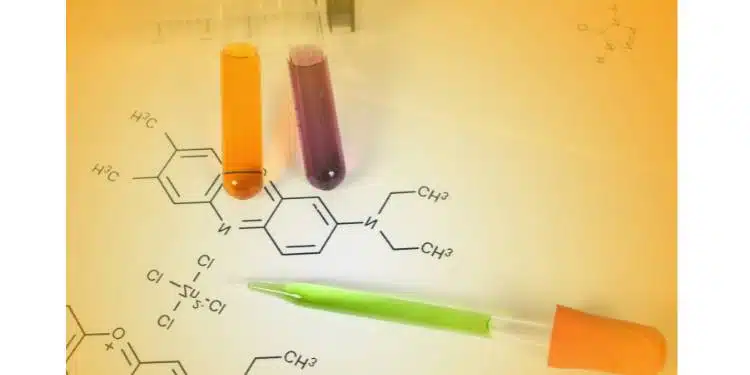
Vegan, Organic, Green, and Blue Skincare Claims
You have probably heard of vegan skincare, organic skincare, green skincare, blue skincare, and others. These claims are extremely effective skincare marketing techniques that pull at our heartstrings and attempt to increase market share. There is no evidence that skincare products in these categories are any more effective or safer than more accessible drugstore brands that sell for a fraction of the price and are backed by nationally and internationally known brands with reputations to uphold. Yet, all too often, these “specialty” products aren’t very affordable. I see them in the stores at $50, $100, up to $500 an ounce, that’s $8000 per pound. These products are flying off the shelves. Preposterous!
The Clean Product Claim
We’ve all seen products claiming to be clean. This claim implies that the product doesn’t contain any ‘dirty’ chemicals, or ones that harm you, the planet, or the oceans. In other words, there are no toxins in this product. How’s that for fear-mongering? Are all the other products loaded with cancer-causing and estrogen-disrupting ingredients? Reputable scientists know that the toxicity of any given compound is determined by the dose or exposure of that chemical. One of the most, if not the most, toxic dirty unclean chemicals on the planet is botulism toxin. The word toxin is even included in its name. Yes, exposure to 3000 units of botulism toxin could cause botulism and ultimately death. Yet over 3 million injections into the faces of millions of Americans, injections with the very same botulism toxin, occurred this year alone in an attempt to minimize the dreaded wrinkle. I don’t hear anyone yelling, kicking, or screaming to take Botox® off the market. The fact remains, that all cosmetics are legally required to be safe for consumers.
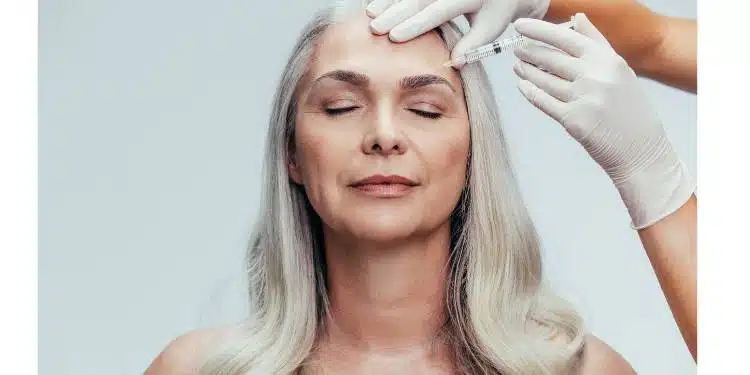
Skin Perfecting Creams
How about those skin-perfecting creams? Have you seen them? And will they make our skin perfect? The only perfect complexion I ever saw was in a magazine, created by a team of hair stylists, makeup artists, photographers, and lighting specialists. Of course, when this talented group completed the photoshoot, another team of digital techs, graphic designers, and special effects professionals went to work. It’s called photomanipulation. When the project is complete, the model in the photo barely resembles the individual in person. Don’t be fooled. An over-the-counter (OTC) perfecting cream? I don’t think so.
The Regenerating or Renewing Cream Claims
You might feel tempted to purchase a regenerating or renewing cream you heard about. Do know that the skin regenerates all on its own from the very bottom of the most superficial layer of skin, the epidermis? Within two weeks, the non-living cells that maintain skin hydration on the surface of the skin turn over, and in about a month, the entire epidermis, or the entire top layer of skin, renews itself. This happens whether you apply a renewing cream or not. Unfortunately, there is no valid science that proves ingredients in over-the-counter (OTC) cosmetics, when applied on the skin surface, penetrate 20 layers of non-living cells, and then another 40 – 60 layers of viable cells through a basement membrane to rejuvenate anything.
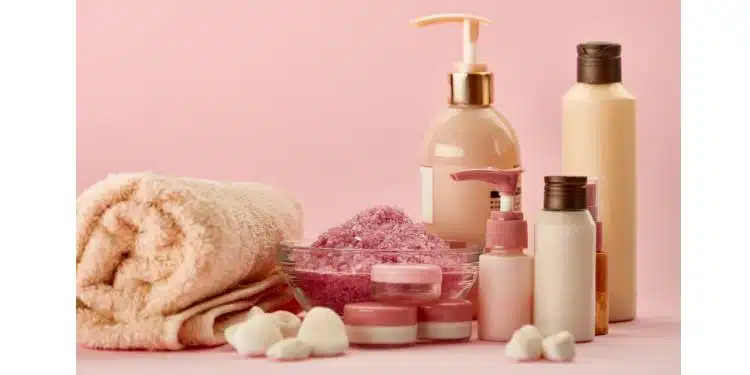
Specialty Skincare Product Claims
One of the newest, hottest trends in skincare right now revolves around products marketed to women in their perimenopausal years. Cosmetic companies created special moisturizers targeted for menopausal skin. Really? As if these products behave differently on non-menopausal skin. Ingredients applied to the skin don’t know the hormonal status of the individual. It’s a ploy to gain market share, that’s it. What will they think of next?
There are plenty of other products created for a particular purpose. For example, have you seen the word “sport” on a skincare product label? How does the product know you’re about to hit the gym? And then there’s the night cream, the moisturizer with ingredients that can tell the time of day. Do these evening moisturizers go to work at sundown, at 10:00 PM, or at midnight? Although they won’t contain sunscreen filters, ingredients in night creams are the same as those in day cream formulations. As a result, we buy two products instead of one. Brilliant marketing.
And have you heard about angel dusting? Angel dusting means adding tiny doses of exotic compounds, and sometimes not-so-exotic compounds, to a product to satisfy a claim on a label. Manufacturers boldly tout the magical abilities of these ingredients. They say these formulations penetrate the skin, repair the underlying collagen and elastin, and ultimately reverse the hands of time. You see, skincare manufacturers know we are willing to pay more for products that promise more, though they don’t necessarily deliver more. One of the first examples of angel dusting I recall was in the early 2000s when Victoria Beckham was promoting facials and facial creams containing nightingale droppings. Some things haven’t changed. Today in skincare we find placenta extracts, sea kelp, red algae, brown algae, green algae, any algae, and the newest trendiest ingredient, snail mucin. These ingredients are often added to the products in minuscule doses, often less than 1%, to satisfy the claim on the label. While they boost sales, there is no proof they actually benefit our skin. Angel dusting at its best!
In addition to arbitrary ingredients, we also see random descriptive terms on product labels to improve purchasing power. Calming, plumping, firming – I could go on and on. Exactly how does a cream calm the skin? Is the skin surface anxious? If it’s inflamed, irritated, red, or itchy, or if you have other abnormal skin symptoms, it makes sense to consult a board-certified dermatologist. Calming moisturizers are simply moisturizers. The same is true for plumping and firming moisturizers. They are just moisturizers.

What We Need Vs. What We Want
Let me offer this perspective on the safety of the skincare industry. Yes, we all want safe products. In 2022, the National Highway Traffic Safety Administration (NHTSA) estimated that there were almost 43,000 fatalities on our roads and highways that year. Yet, no watchdog groups are screaming “Take the cars off the roads.” We learn to heed traffic signs, and traffic lights and obey speed limits because we realize the benefits of doing so outweigh the risks of injury or death. We have the option to make good decisions related to driving, which most people choose rather than give up their cars.
The Center for Disease Control (CDC) estimates that one in six Americans become sick from food poisoning every year. That’s 48 million people experiencing illness from food. More than 128,000 people are hospitalized with about 3000 individuals dying from foodborne illness every year. We have to eat. Perhaps we should put more of our energy into creating a safer food industry.
Everyone desires safe, effective night creams, eye creams, anti-aging and anti-wrinkle creams. Like food and transportation, people believe we need these items. However, it is a “want”, not a “need”. What we truly need is a perspective change. I understand why women enjoy having a vanity full of pretty little colorful jars and bottles. These products are fun. But if you have concerns about the effects of overexposure to all these “worrisome ingredients” it makes sense to curtail applying them to your body. Honestly, we don’t actually need the majority of them. In fact, we probably don’t need any of them.
The Bottom Line
Keep in mind that cosmetics, by law, cannot intend to change the function or structure of skin. In the United States, only products classified as drugs can be manufactured to purposely make changes. Since so many of us are willing to purchase these little jars of hope, though, skincare companies offer them to us. It’s profitable, to the tune of almost $30 billion in the U.S. per year.
Marketing is powerful, especially in the skincare industry. Beware of claims on product labels that don’t mean anything. I understand the temptation to purchase for ourselves or others these promising-sounding items that have taken Instagram by storm, but please be mindful. Be aware. Taking care of our skin doesn’t need to be expensive or difficult. I promise.
About the Author: Fayne Frey, M.D.
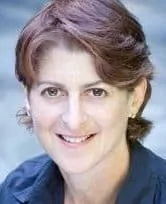
Fayne Frey, M.D., is a board-certified clinical and surgical dermatologist practicing in West Nyack, New York. She specializes in the diagnosis and treatment of skin cancer and is a nationally recognized expert in the effectiveness and formulation of over-the-counter skincare products. As a speaker, Dr. Frey captivates audiences with her wry observations regarding the skincare industry. She consults for numerous media outlets, including NBC, USA Today, and, the Huffington Post, and shares her expertise on both cable and major TV outlets. Dr. Frey is the Founder of FryFace.com, an educational skincare information and product selection service website that simplifies the overwhelming choice of effective, safe, and affordable products available. She is also the author of, “The Skincare Hoax: How You’re Being Tricked into Buying Lotions, Potions and Wrinkle Creams”. In addition, Dr. Frey is a fellow of both the American Academy of Dermatology and the American Society for Dermatologic Surgery.


